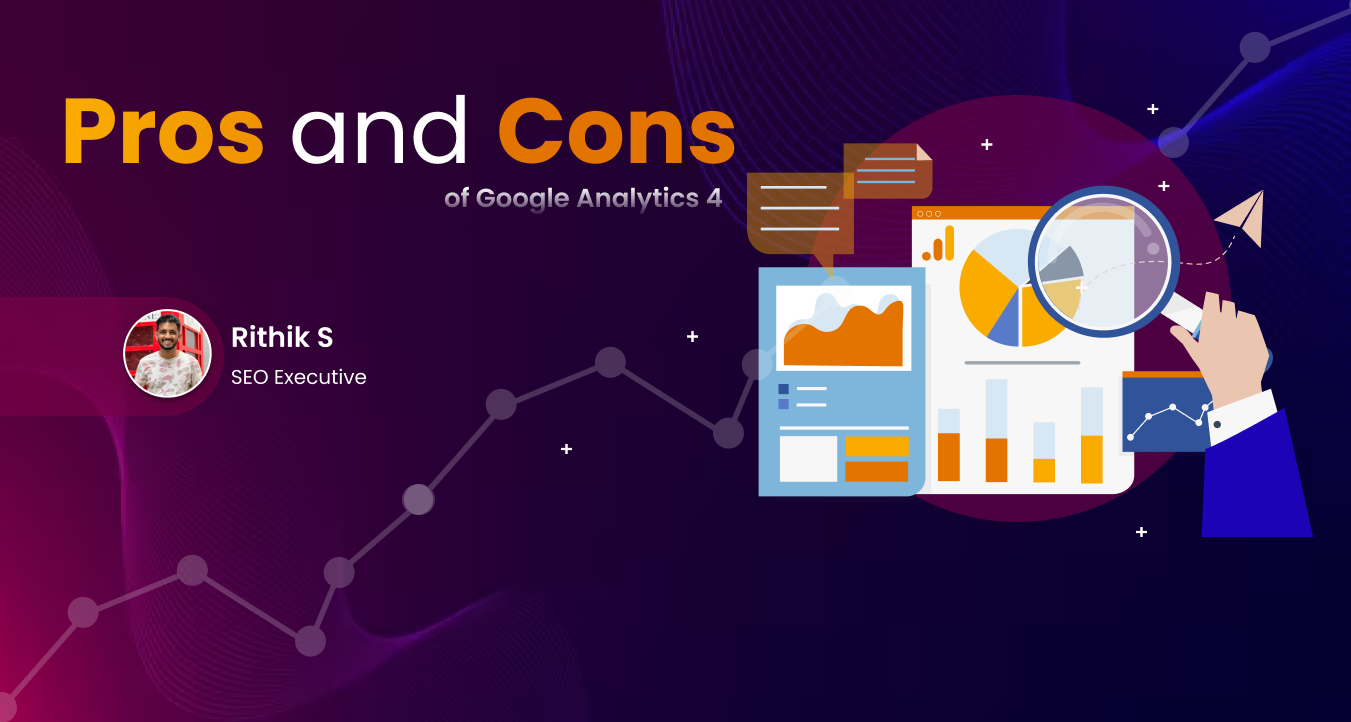GA4 is yet another significant Google release (Google Analytics 4). Google announced on March 2022 that Universal Analytics will be sunsetted by July 2023. This implies that by that time, everyone using the universal analytics will have to upgrade to GA4.
Google Analytics, also known as Universal Analytics, is a platform that gathers information from your websites and apps to provide reports that offer insights for your organization, whereas GA4 is the most recent and advanced version.
What is GA4?
GA4 (Google Analytics 4) is the latest version of Google's web and analytics platform, offering a more comprehensive and advanced set of features compared to Universal Analytics. While Universal Analytics focuses on tracking individual user interactions and collects data from your websites and apps to create reports that provide insights into your business, Google Analytics 4 takes a more holistic approach, incorporating machine learning and AI to provide a more complete understanding of customer behavior across channels and devices.
In this blog, let’s get into what are the pros and cons of GA-4.
Pros of GA-4
- Easy to Implement: Creating a GA4 property is simple when done through Google Tag Manager (this is still the preferred and recommended practice). Google Tag Manager has its configuration tag for GA4 that functions like the global site tag and fires first on every page.
- Enhanced Measurement: Enhanced Measurement is a new feature in GA4 that tracks pageviews for SPAs (single-page apps). You may have encountered a SPA as a website that features few but long, detailed web pages. Site visitors can interact with the pages but the URL will not necessarily change or reload with every interaction since it’s all one page. GA4 can now capture and report on that data whereas Universal Analytics has its limitations in doing so as a session-based reporting system.
-
Enhanced data privacy: GA4 offers improved data privacy features, such as automatic IP anonymization, that help protect user data and ensure compliance with data protection regulations.
-
Improved cross-device tracking: GA4 uses a more advanced tracking technology that can better track users across different devices and platforms.
-
Custom Audiences Automatically: When you create a custom audience in GA4, it automatically publishes to all other connectors like Google Ads, Optimize, etc. You no longer have to recreate each Audience in each connector because it automatically connects, thus saving you valuable time!
Cons of GA4:
- Property Limits Still Exist: GA4 has set limitations on the number of properties users are allowed to create (just as with Universal Analytics). For the free version, users are allowed to create up to 25 registered user properties within a single property (the numbers are set to be higher for enterprise versions but we do not know what the cap is for those yet).
- Cannot Create ‘Views’ in the Free Version of GA4: Universal Analytics allowed users to create multiple Views within the same Property. Many website owners or webmasters did this for organization and testing purposes. For large websites that captured vast amounts of data, filtering out certain data points and reports into separate views made it faster to load the reports as well as easier to digest and analyze.
- Steep learning curve: GA4 is more complex than its predecessor Universal Analytics, and may require a steep learning curve for those not familiar with it.
- Limited support: As a new tool, GA4 may not have as much support and documentation available compared to older versions of Google Analytics, which could make it more difficult to troubleshoot issues or learn how to use the tool effectively.
- Limited integrations: GA4 may not integrate with all of the third-party tools and platforms that you're currently using, which could make it difficult to fully integrate your analytics data.
- Limited historical data: GA4 is a relatively new tool, so if you're transitioning from an older version of Google Analytics, you may not be able to import all of your historical data.
Overall, GA4 has many advantages, including enhanced data privacy, better cross-device tracking, and more potent machine learning-based insights. There are some disadvantages to take into account, though, such as the scant past data, challenging learning curve, and lack of features. The choice to use GA4 will ultimately rely on your unique needs and requirements, but it may be worthwhile to experiment with the tool to determine whether it's the perfect fit for your business.




